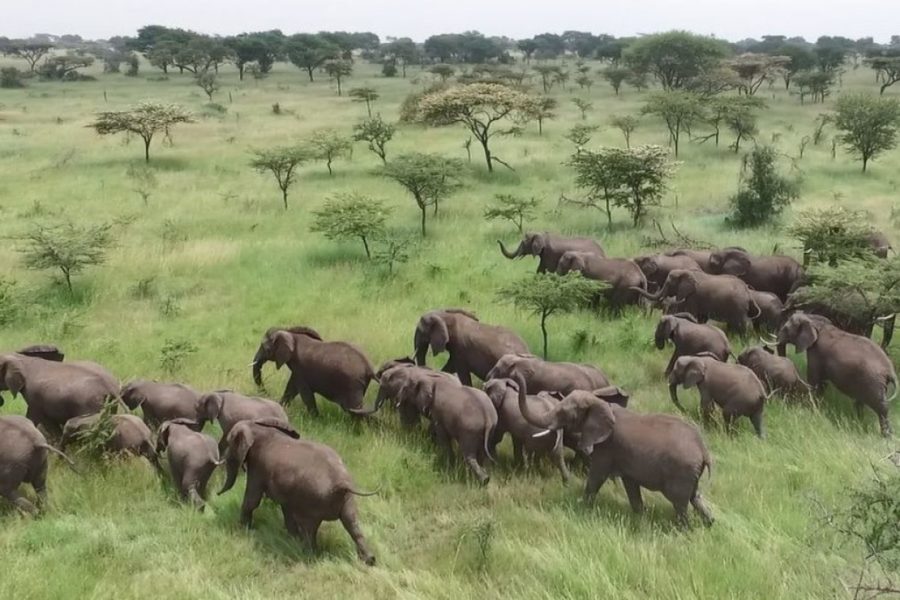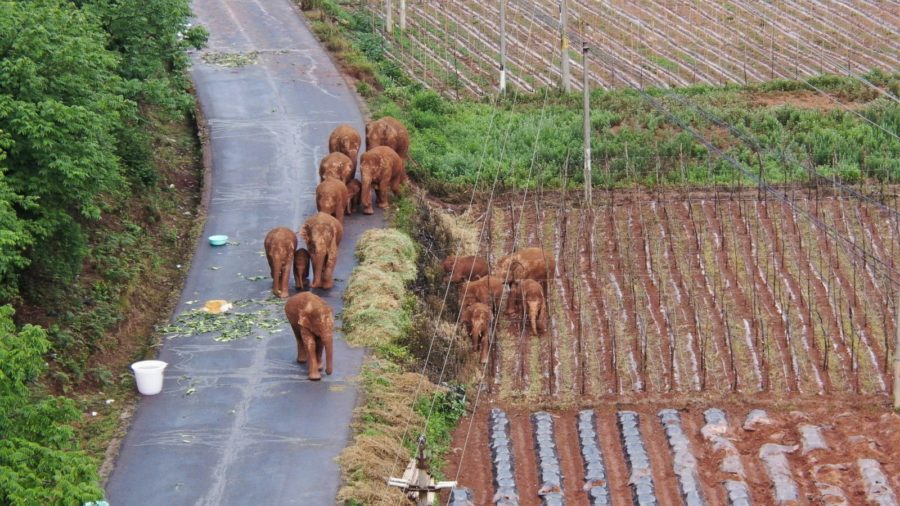Elephant expert Joshua Plotnik suspects the herd is looking for food, or fleeing habitat loss

A herd of elephants in southwest China has been on a year-long journey to nowhere, wreaking havoc, capturing hearts and confounding scientists along the way.
The elephants left their home on a wildlife reserve in the southwest Yunnan province more than a year ago, and have since travelled roughly 500 kilometres.
The creatures have been seen trotting down urban streets, raiding farms for food and water, visiting a car dealership and even showing up at a retirement home, where they poked their trunks into some of the rooms, prompting one elderly man to hide under his bed. They were most recently seen on the outskirts of Kunming, a city of seven million people.
Scientists don’t yet know what sparked this unconventional journey, but many have speculated they’re trying to find a new home because their traditional one is no longer suitable.
“These elephants are likely trying to find resources that were limited in the location where they came from,” Joshua Plotnik, an expert on Asian elephant cognition and behaviour at Hunter College in New York, told As it Happens host Carol Off.
“Or they were potentially pushed out by increasing human encroachment on their habitat. But we don’t know that yet.”
Nilanga Jayasinghe, manager for Asian species conservation at the World Wildlife Fund, told Reuters that Asian elephants are usually loyal to their home ranges. But if there have been disturbances, loss of resources or development, they may move out.

“In this case, we don’t really know why they left their home range, but do know that there has been significant habitat loss due to agriculture and conversion of forests into plantations within that range in the last few decades,” Jayasinghe said.
“What possibly happened here is that in their search for new habitat, they got lost along the way and kept going.”
The herd began with 16 members, but local officials say two have returned home, and a new baby was born during the journey.
The wandering elephant parade is now composed of six female and three male adults, three juveniles and three calves, according to official reports.
The elephants have become local celebrities — in part because they’re being surveilled constantly by a fleet of 14 camera drones and wildlife personnel seeking to minimize any potential human-elephant conflicts.
Videos and photos of their shenanigans are all over social media, and they have been trending for days on China’s Weibo microblogging service, where photos of the group lying down and sleeping attracted 200 million views Monday night.
“To my knowledge, this is unprecedented,” Plotnik said. “Certainly in terms of the public reaction, that would tell you that this is a unique and novel experience for people. But it also suggests that there’s a problem that needs to be solved here and we need to try and figure out why the elephants left in the first place.”
Elephants are protected in China, and the government has asked people to stay out of their way and not stare at them or try to scare them off.
Instead, authorities are using passive means to keep them them out of populated areas, including using parked trucks and construction equipment to block roads, or food drops to lure them away.
“The good news from what I’ve heard is that local community members, government officials and scientists are working together, which is exceptional, to try to come up with ways to mediate the potential conflict here,” Plotnik said.
“But at some point it will become more desperate if the elephants become more aggressive or if they end up causing more damage, then you might see an increase in the intensity of the conflict. And that’s when it again becomes more of an immediate problem that needs fixing.” Read more from CBC





